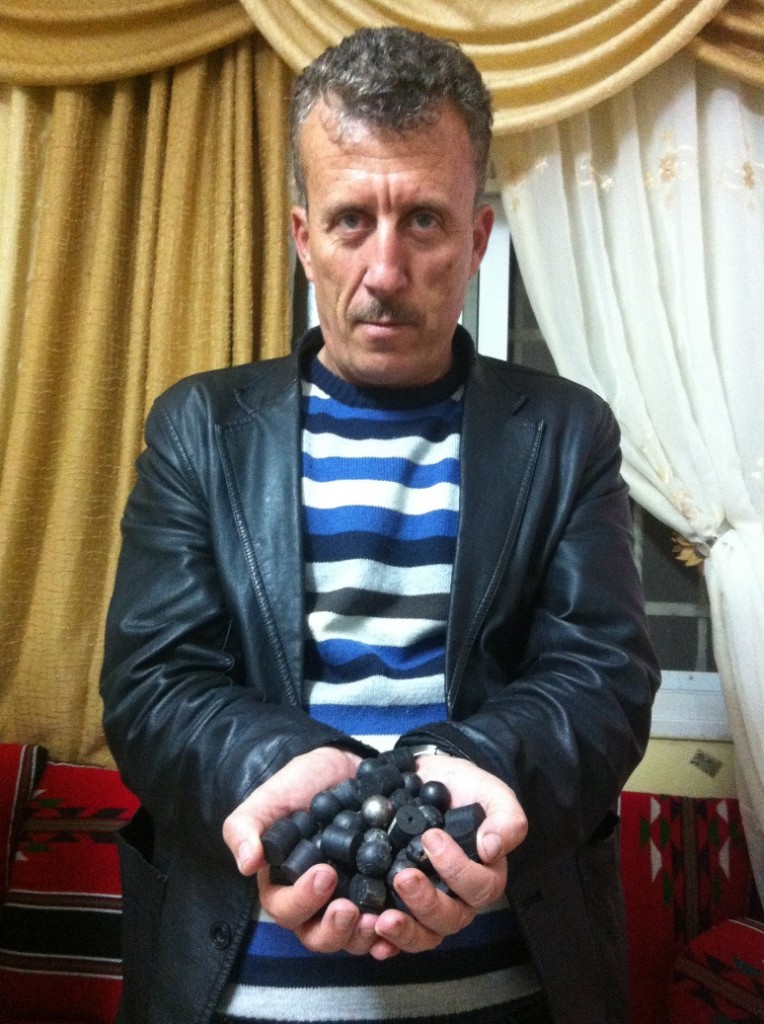In a moving piece on 60 Minutes last night, CBS correspondent Bob Simon interviewed both Israelis and Palestinians and asked if hope was fading for a two state solution.
Dr. Mustafa Barghouti, a former candidate for Palestinian president, said his optimism was waning. “While my heart still wants to believe that the two-state solution is possible, my brain keeps telling me the opposite because of what I see in terms of the building of settlements. So, these settlers are destroying the potential peace for both people that would have been created if we had a two-state solution,” he said.
A central contention concerns the building of settlements–many on land formerly held by Palestinians–which has fragmented and reduced Palestinian land owernship. Daniella Weiss moved to the West Bank from Israel 33 years ago and now serves as the may of a large settlement. Saying she was determined to “to hold strong to the soil of the Holy Land,” Weiss acknowledged that part of the reason for the settlements was in blocking a Palestinian state from emerging. “I think that settlements prevent the establishment of a Palestinian state in the land of Israel. This is the goal. And this is the reality,” she said.
For Barghouti, the settlements represent a way to control–and even humiliate–Palestinians. 60 Minutes reported:
Israel’s invasion of Gaza – all the death and destruction – convinces him that Israel does not want a two-state solution. “My heart is deeply broken, and I am very worried that what Israel has done has furthered us much further from the possibility of [a] two-state solution.”
Palestinians had hoped to establish their state on the West Bank, an area the size of Delaware. But Israelis have split it up with scores of settlements, and hundreds of miles of new highways that only settlers can use. Palestinians have to drive – or ride – on the older roads.
When they want to travel from one town to another, they have to submit to humiliating delays at checkpoints and roadblocks. There are more than 600 of them on the West Bank.
Asked why there are so many checkpoints, Dr. Barghouti said, “I think the main goal is to fragment the West Bank. Maybe a little bit of them can be justified because they say it’s for security. But I think the vast majority of them are basically to block the movement of people from one place to another.”
Here’s how they block Barghouti: he was born in Jerusalem, grew up in Jerusalem and worked in a hospital there for 14 years. Four years ago he moved to a town just 10 miles away, but now, because he no longer lives in Jerusalem, he can’t get back in – ever.
He says he can’t get a permit to go. “I asked for a permit to go to Jerusalem during the last year, the last years about 16 times. And 16 times they were rejected. Like most Palestinians, I don’t have a permit to go to the city I was born in, to the city I used to work in, to the city where my sister lives.
But even where Palestinians do have control over their homes and land, Israeli soldiers often take over these sites to conduct their operations. In the recent conflict in Gaza, Amnesty International criticized the Israeli government–and Hamas–for using human shields. AI said that Israel often forced families to remain in their homes while Israeli soldiers used the these civilian sites as a sniper base. This may constitute a war crime because it deliberately puts civilians at risk. Simon exposes how this practice occurs even outside of the context of combat. AI stated in a January 8, 2009 press release
“Our sources in Gaza report that Israeli soldiers have entered and taken up positions in a number of Palestinian homes, forcing families to stay in a ground floor room while they use the rest of their house as a military base and sniper position. This clearly increases the risk to the Palestinian families concerned and means they are effectively being used as human shields.”
60 Minutes echoes a similar story.
One house for example is the highest house on the highest hill overlooking the town of Nablus. 60 Minutes learned that Israeli soldiers often corral the four families who live there and take over the house to monitor movement down below.
Simon and the 60 Minutes team went to an apartment owned by a Mr. Nassif. That morning, Israeli soldiers had apparently entered the apartment, without notice, and remained there when Simon knocked on the door.
“We cannot speak with you, there are soldiers,” Nassif told Simon. “We are in prison here.”
Asked what was happening, Nassif says, “They are keeping us here and the soldiers are upstairs, we cannot move. We cannot speak with you.”
Nassif said he couldn’t leave the house and didn’t know how long he’d have to stay in place. Asked if they were paying him any money, he told Simon, “You are kidding?”
Abdul Nassif, a bank manager said he had to get to his bank to open the safe, but one of the soldiers wouldn’t let him go. He told 60 Minutes whenever the soldiers come they wake everybody up, and herd them into a kitchen for hours while soldiers sleep in their beds. They can’t leave or use the phone, or let 60 Minutes in.
UPDATE: If you wish to write to 60 Minutes to thank them for their story, you can email them at this address: [email protected]
